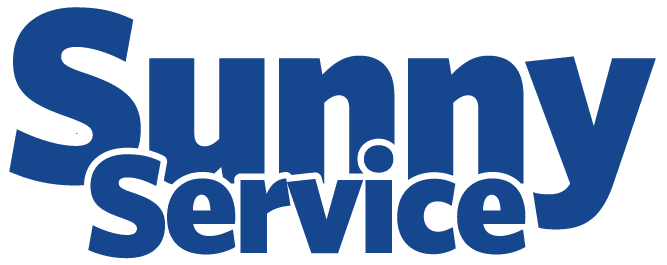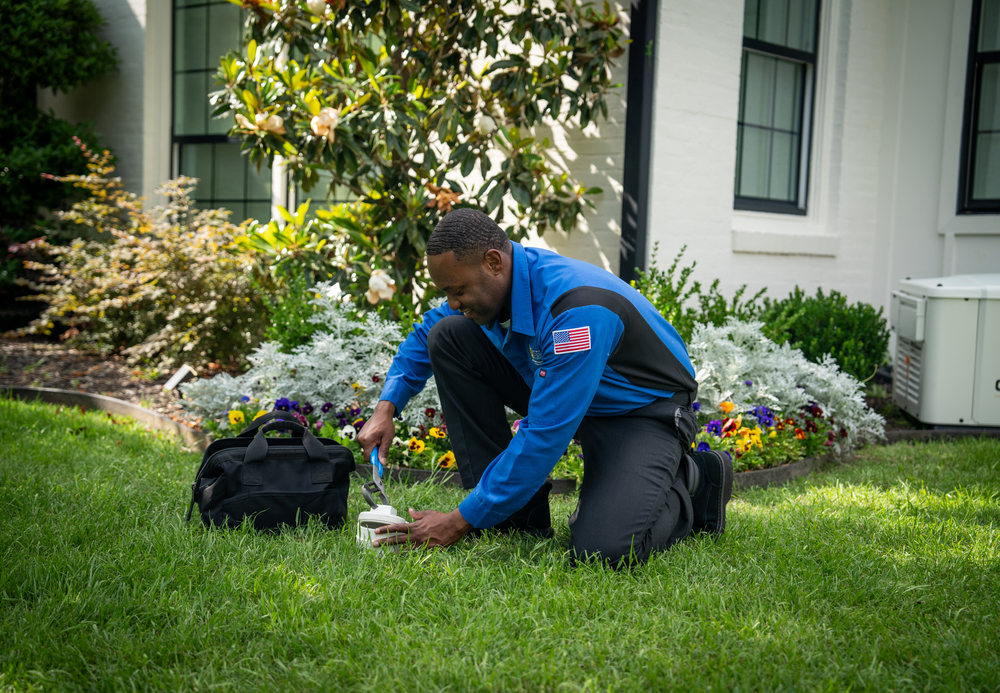A slow drain or strange smell from your sink might seem harmless, until it turns into a full-blown plumbing disaster. Sewer line problems can develop quietly over time, and when ignored, they often lead to water damage, property disruption, and costly repairs.
At Sunny Service, we help homeowners across the Dallas-Fort Worth area spot the early signs of sewer line issues and take action before things escalate. If you’re noticing strange plumbing behavior, it’s time to act.
We’ll briefly go over common signs of sewer line problems, what can cause these issues, and what you can do to treat or prevent them.
Why Recognizing Sewer Line Problems Early Matters
A damaged or clogged sewer line isn’t just an inconvenience—it’s a serious risk to your home’s integrity and your family’s health. Sewer line issues often start subtly, then spiral into emergency situations that require extensive repair.
Early detection can help you:
- Prevent home damage from sewage backups and interior flooding
- Protect your foundation from leaks and soil erosion
- Avoid health risks from exposure to bacteria and mold
- Minimize repair costs with early, less-invasive fixes
- Skip the stress of emergency plumbing services
Being proactive with sewer line repairs is essential. With the right attention to detail and inspection schedule, you can avoid major sewer line issues altogether.
Common Signs of Sewer Line Problems
Wondering if your home’s sewer line issues are more than just a localized clog? Keep an eye out for these telltale signs of sewer line problems:
- Slow-Draining Sinks, Tubs, or Toilets: If one drain is sluggish, it’s likely a localized clog. However, if multiple drains are slow, that could point to a sewer line issue.
- Frequent or Recurring Clogs: Constant backups suggest there’s a deeper blockage that standard plunging won’t fix.
- Foul Sewage Odors: Bad smells coming from drains or around your yard can point towards sewer gas leaks from a break or clog, and these should be addressed quickly.
- Gurgling Noises From Pipes or Toilets: Bubbling or gurgling sounds when water drains often mean air is trapped due to a blockage in the line.
- Soggy Patches or Sinkholes in Your Yard: Damp ground or unexplained dips in the yard could mean your sewer line is leaking underground.
- Backups in Lower-Level Fixtures: If your basement toilet or shower backs up when other fixtures are in use, your main sewer line could be partially or fully blocked.
- Rodent or Insect Problems: A sudden influx of pests may indicate a sewer line breach, especially if the line is attracting them with waste.
What Causes Sewer Line Issues?
Even the best-maintained homes can experience sewer line issues due to aging infrastructure, environmental shifts, or poor usage habits. Here are some of the most common causes:
- Tree Root Intrusion: Roots naturally seek out moisture. Older sewer lines made of clay or cast iron are vulnerable to cracking and infiltration.
- Pipe Corrosion or Collapse: Over time, pipes can rust, break, or disintegrate, especially in homes with older plumbing systems.
- Improper Flushing Habits: Wipes, grease, hygiene products, and even “flushable” items can clog your sewer line.
- Shifting Soil or Foundation Movement: Expanding soil or settling foundations can shift or break underground pipes.
- Heavy Rainfall or Flooding: Sudden weather events can overwhelm your sewer system, causing backups or damage.
Even if your system seems fine, a little prevention goes a long way. Here are some preventive tips to help protect your sewer line:
- Avoid planting trees or large shrubs near your main sewer line.
- Flush only human waste and toilet paper—no wipes, grease, or hygiene products.
- Schedule routine plumbing services, especially in older homes.
How To Tell if Your Sewer Line Is Clogged
It’s not always easy to tell the difference between a basic drain clog and a deeper sewer line blockage. A few key signs can help you figure out whether you need a plunger or a plumber.
Here are some clogged sewer line symptoms to look out for:
- One Clogged Fixture: A slow kitchen sink or backed-up bathroom drain might be a local, isolated clog.
- Multiple Clogged Drains: If toilets, tubs, and sinks all clog at once, there’s likely a blockage deeper in your main sewer line.
- Backups When Other Fixtures Are Used: Is water rising in the shower when you flush the toilet? That’s a common indicator of a shared sewer line problem.
- Water Pooling Near Floor Drains: Water near floor drains or in basements often points to a main line blockage, not a local clog.
If you’re unsure whether your sewer line is clogged, the most accurate way to confirm a clog is with a video camera inspection performed by a licensed plumber. It shows exactly where the issue is and helps prevent unnecessary digging or guesswork.
Contact a professional plumber if you’re seeing more than one of these signs. Left untreated, clogged sewer line symptoms can quickly escalate into structural damage and hazardous sewage exposure.
Professional Sewer Line Services from Sunny Service
At Sunny Service, our experienced technicians use advanced tools and years of experience to identify, repair, and prevent sewer line issues without tearing up your property. Our plumbing and sewer line repair services include:
Video Camera Sewer Inspections
We begin with a non-invasive camera inspection that gives you confidence and clarity before any repairs begin. Our team uses the camera to locate the clog or root intrusion, check for any cracked or broken pipes, and create a custom repair plan that protects your home.
Sewer Line Cleaning & Repair
If your sewer line is clogged or damaged, we offer fast, effective solutions that resolve the issue quickly. Whether it’s a small blockage or a major repair, our team handles it with care and precision.
We offer trenchless sewer line repairs, hydro-jetting services, and full sewer line replacements.
Preventive Maintenance Plans
Want to avoid future problems? Our preventative maintenance plans are designed to keep your home protected year-round, even during storm season. We’ll make sure your sewer line is in peak condition to help prevent potential issues in the future.
Why Homeowners Trust Sunny Service
When it comes to sewer line problems, you need a team that shows up with experience, integrity, and the right tools. That’s exactly what Sunny Service delivers. We work with homeowners in the Dallas-Fort Worth area to provide long-lasting sewer line solutions that help prevent serious issues.
Licensed and Background-Checked Plumbing Professionals
Every technician is fully certified and trained to handle complex sewer diagnostics and repairs.
Decades of Experience in Sewer Line Services
We’ve served homes across the DFW Metroplex for years, with a reputation for accuracy and honesty.
Flat-Rate Pricing and No Surprises
You’ll know the cost before any work begins. No hidden fees, just transparent service.
Satisfaction Guaranteed
We stand behind our work. If you’re not happy, we’ll make it right.
Locally Owned and Operated
As a Tarrant County business, we understand the unique plumbing challenges of the area, and we’re always nearby when you need us.
Schedule a Sewer Line Inspection Today
Don’t ignore the warning signs of a serious sewer problem. The sooner you act, the easier and more affordable it is to resolve.
At Sunny Service, our plumbers are ready to jump into action to protect your home. We make booking an appointment easy and efficient with:
- Online scheduling, available 24/7
- Emergency plumbing response for urgent issues
- Flexible financing options for repairs and replacements
- Seasonal discounts and special offers
From fixture repairs to water heater services, our team handles it all. Give us a call today to book your next plumbing service with Sunny Service.
Frequently Asked Questions (FAQ)
What’s the difference between a drain clog and a sewer line blockage?
A drain clog typically affects a single fixture, such as a kitchen sink. A sewer line blockage affects multiple drains and may cause backups throughout your home.
How often should I have my sewer line inspected?
We recommend a professional sewer inspection every 2–3 years, especially for older homes or properties with trees near the sewer line.
What should I do if I smell sewage in my home?
Call a licensed plumber immediately. Sewer odors can indicate a break, backup, or blockage in your main line and shouldn’t be ignored.
Can I fix a sewer line clog myself?
While you can try plungers or drain cleaners for small clogs, deeper sewer issues require professional tools and diagnostics to fix them properly.






